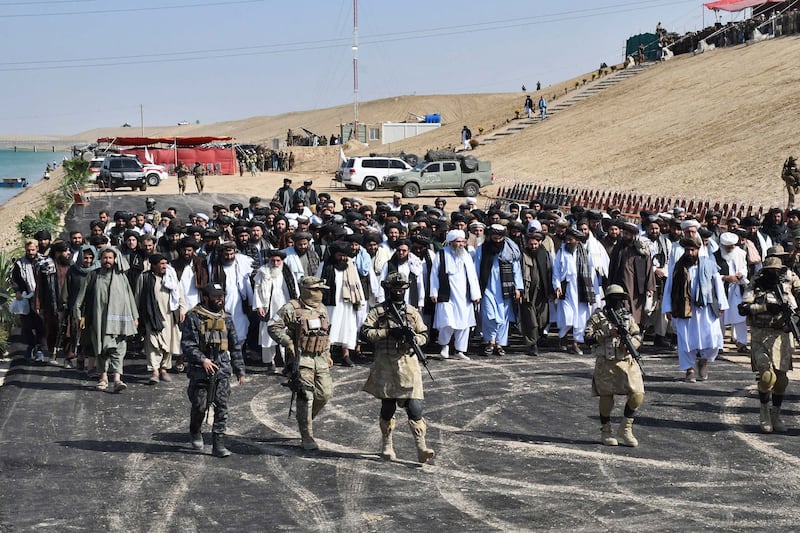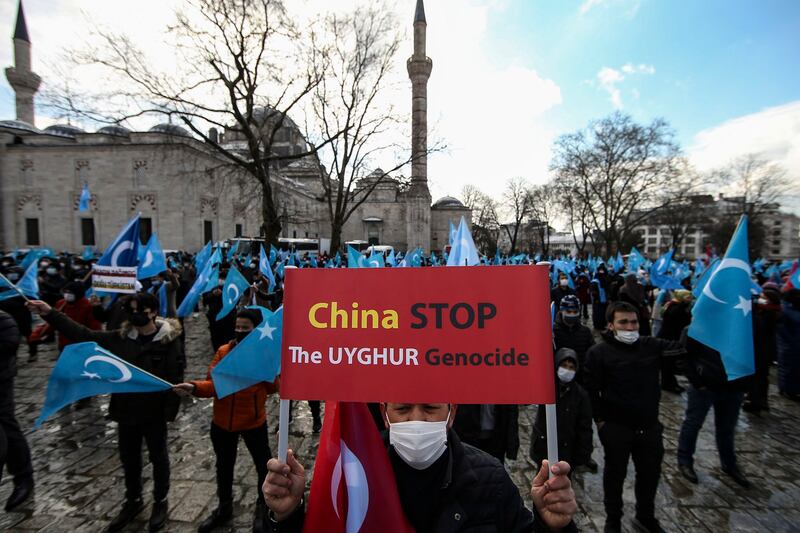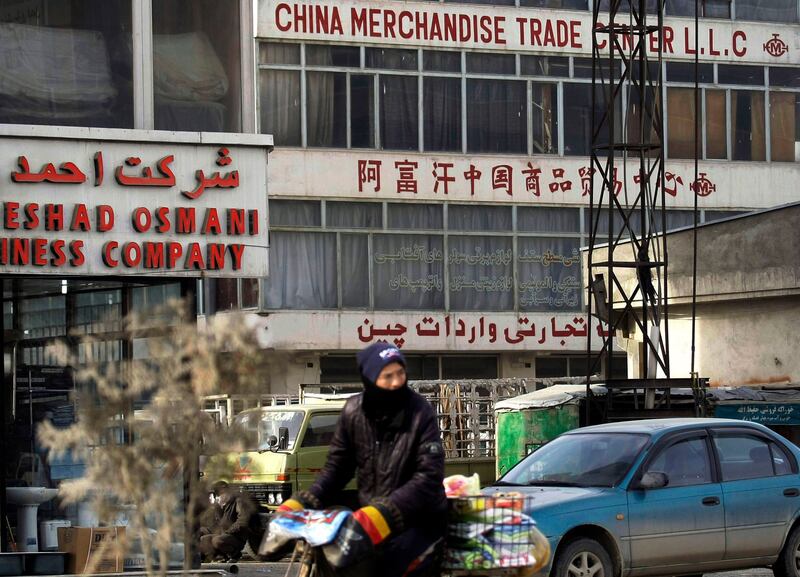Beijing has urged Afghanistan’s Taliban government to adopt more “inclusive” and “moderate” policies in order to receive full diplomatic recognition, which Beijing said “will come naturally” with time.
The warming relations come, experts say, as Beijing seeks access to Afghanistan’s vast mineral deposits, including its copper mines.
China last week became the first country to accept the credentials of an ambassador from the Taliban, which retook control of Afghanistan in August 2021 after the withdrawal of U.S. forces but is not yet formally recognized as the government of the country by any state.
Assadullah Bilal Karimi, a former Taliban spokesperson believed to be in his early 30s, handed credentials to Hong Lei, the director-general of the protocol department of China's foreign ministry, on Friday.
On Tuesday, Chinese foreign ministry spokesman Wang Wenbin said that as “a long-standing friendly neighbor of Afghanistan,” China wanted to help the Taliban emerge from isolation. But he said the regime had to pursue reform to receive full diplomatic recognition.
To that end, Wang called on the Taliban to adopt “moderate and prudent domestic and foreign policies” and an “open and inclusive political structure,” as well as to combat “all forms of terrorist forces.”
“China believes that Afghanistan should not be excluded from the international community,” Wang said. “We believe that diplomatic recognition of the Afghan government will come naturally as the concerns of various parties are effectively addressed.”

Afghanistan is the only country that bans women from being educated, which many countries cite in boycotting ties with the Taliban.
China’s approximately 12 million Muslim Uyghurs, meanwhile, have been subject to harsh government campaigns that China says are necessary to fight extremism and Islamic terrorism, including a mass incarceration program that has affected as many as 1.8 million people.
China also regularly conducts “strike hard” campaigns in Xinjiang, including police raids on Uyghur households, restrictions on Islamic practices, and curbs on the culture and the Uyghur language.
The Taliban previously had a charge d'affaires at Afghanistan's embassy in Beijing, a position that does not require formal recognition of the host country, according to a report from Reuters.
A friend in need
In receiving an ambassador from Afghanistan's new government, Beijing has also beaten out the Taliban's erstwhile benefactors – Pakistan, Saudi Arabia and the United Arab Emirates, the only countries to recognize the Taliban regime before its 2001 ouster.
That has raised questions about China’s urgency.

Part of the draw for China, according to Ja-Ian Chong, an expert in Chinese foreign policy at the National University of Singapore and a nonresident scholar at the Carnegie Endowment for International Peace, is more stable relations with a country on its land border.
Working with the Taliban could also help China to "develop support in the Islamic world against criticism of its human rights abuses in Xinjiang" against the Uyghur Muslim minority, Chong told Radio Free Asia, "while allowing access to mineral resources in Afghanistan."
For other experts, though, it’s mostly the latter, with China motivated by more than just good ties with neighbors and its regional reputation.
Anders Corr, principal of New York-based Corr Analytics, said an “extra vote at the United Nations” and a new ally would be nice upshots of wider diplomatic recognition for the Taliban. But he said that was not why China was so “quick to jump on this side of these terrorists.”
“China has financial and business interests in Afghanistan,” Corr said.
“They want to extract oil from the country. There’s not as much as in other countries, but there is some,” he said. “There's a lot of copper – probably trillions of dollars worth of mineral resources in Afghanistan that China has, for years, been involved in trying to extract.”
Mineral wealth
China has a long-held interest in the Mes Aynak mine, which lies about 40 kilometers (25 miles) southeast of Afghanistan's capital and reportedly has about $50 billion worth of copper deposits that have yet to be extracted.

A Chinese government official recently visited the mine, according to a Voice of America report, which quoted the Taliban's minister of mining, Shahabuddin Delawar, as saying the extraction of copper from the mine was "one of the top priorities" of the government in Kabul.
And then there’s Afghanistan’s strategic location.
Afghanistan was a central part of the Silk Road, which China's Belt and Road Initiative seeks to emulate. The Taliban said it in October it wants to formally join the project, which would lead to hundreds of millions of dollars pouring into the country for infrastructure projects.
"China needs Afghanistan, and Afghanistan also needs China," China's charge d'affaires in Kabul, Zhao Haihan, said in September, lauding "Afghanistan's geographical and resource advantages" while calling it the "center of Silk Road trade" and "crossroad of Eurasia."
